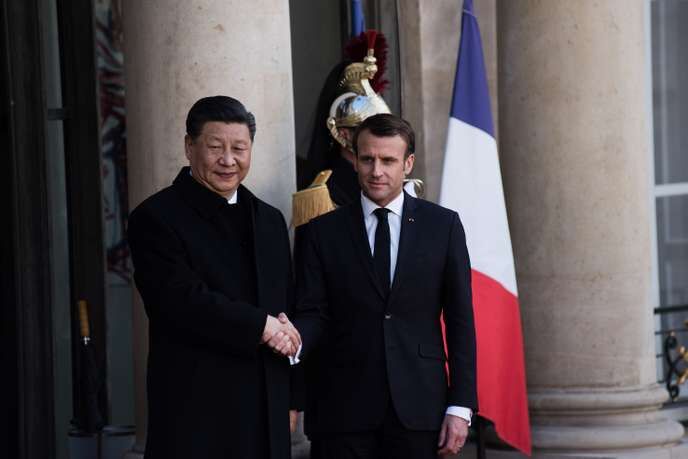Macron’s presence at the helm of the European Union, even if he has little authority, is crucial. As Macron vigorously pursues France’s national independence from the United States and at the same time seeks to expand and deepen European strategic independence, he will seize the opportunity of his presidency over the European Union to turn China into a lever against the United States. Although Macron’s opponents believe that such a move could quickly realize the scenario of turning Europe into a superpower playground.
Although the French president, who is also running for president, is cautiously trying to emphasize the need for good relations with China through various forums; for countries that oppose Macron’s approach, the issue of challenges between Europe and China, as well as the US response to their proximity to Beijing, is crucial. Of course, they also do not find Macron’s approach to using China as a tool against Washington illogical, but they are concerned about the possible consequences.
At the same time, the bilateral relations between France and China show that China also sees this symmetry as a very important and precious opportunity for itself. With the start of the 22nd round of strategic talks between France and China, there was a closeness and focus on improving relations between the leaders of the two countries. At the same time, China has important plans to take advantage of the French presidency over the European Union. At present, pressure is coming from China on Macron to improve China’s international image. The Chinese have said they want France to help build a “correct understanding” of China and pragmatic cooperation with that country at the Union level. It seems that Beijing is willing to use France to improve China’s image and position.
France, on the other hand, will not allow its international credentials to be instrumentalized, despite Macron’s utilitarian foreign policy, as the confrontation between government and parliament has shown. At EU level, too, China’s attitude towards France will not be in Macron’s Europeanist aspirations and EU cohesion, especially since Merkel’s support for Macron’s policies is no longer seen among the Germans, and Eastern Europe, embroiled in trouble with Russia, is very sensitive towards French behavior. But what tempts Macron is that China, in return for credibility with its global image, is giving France guaranteed support to France. Beijing officials have said they support “EU’s integration, its growth and development, as well as the EU’s wider role-playing at international scene” and “the future of China-EU relations it is not important, as this policy will not change.”
At present, however, French lawmakers in the French National Assembly have recognized China’s treatment of the Uyghurs as a definitive example of Chinese genocide, and despite Macron’s opposition and his party to the decision, have not yet taken a coordinated action in favor of a pro-China policy. The French Minister of Economy and Finance has stressed that only international organizations can condemn China’s human rights problems, but the French National Assembly is not alone and other national parliaments in Europe have recognized the Uyghur genocide. The same conflict can be seen in the discussion of the Olympic Games. France is preparing for the Beijing Winter Olympics, while many Western countries, including the United States, Britain, Belgium and Lithuania, have boycotted the Games. Macron seems optimistic about the future of an independent Europe and faces significant challenges at national and Union levels. Therefore, we have to wait and see his electoral fate.










0 Comments